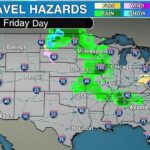Rural Montanans face unique challenges that are not commonly experienced in urban areas – such as issues with internet connectivity, access to healthcare, and the distance required to reach essential services like gas stations and grocery stores. People in the more remote parts of our state heavily rely on their vehicles to access these basic needs and services.
However, the recent EPA rule that mandates two-thirds of vehicles sold by U.S. automakers to be either electric battery powered or plug-in hybrid by 2032 completely ignores the needs of rural Montana and the agriculture community.
While electric vehicles may be suitable for some urban residents, they are not practical for those living in rural areas, especially for Montana’s farming communities. This regulation represents significant federal government overreach and could create serious division between rural and urban communities. Therefore, it is crucial for our lawmakers in Washington, D.C. to prevent this mandate from being enforced.
People are also reading…
As a Montana farmer, former state Senator, and advocate for Montana’s agriculture industry, I have closely worked with these communities and understand the challenges they face. Our gas and diesel-powered vehicles are essential for farmers to travel long distances and refuel, something that is not feasible with electric vehicles due to the lack of charging stations and grid capacity.
If farmers are forced to switch to battery electric vehicles, it could lead to disruptions in crop shipments and supply chains, as well as price increases. For someone like me, who lives several miles away from the nearest paved road and operates in cold weather conditions, an electric vehicle would be impractical. It is essential for our elected officials to acknowledge this reality.





